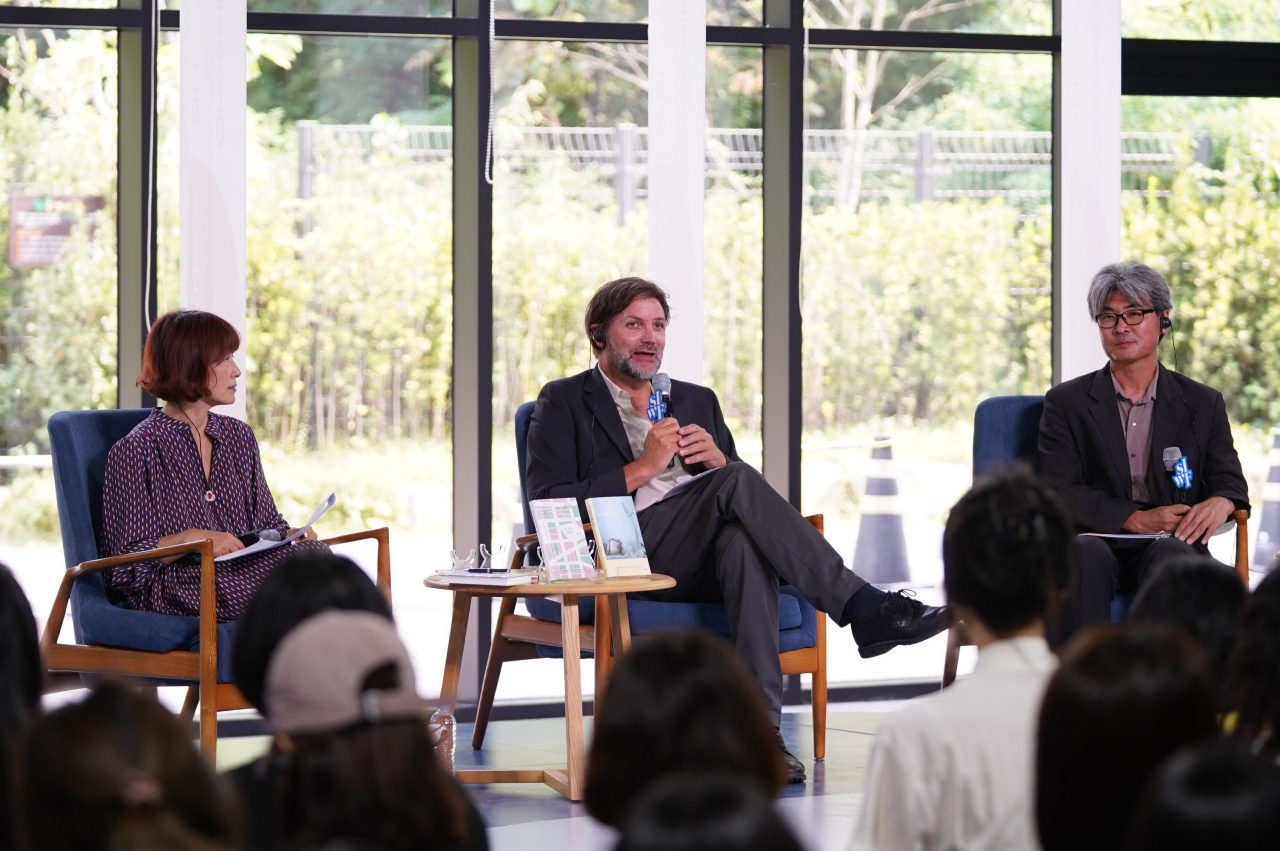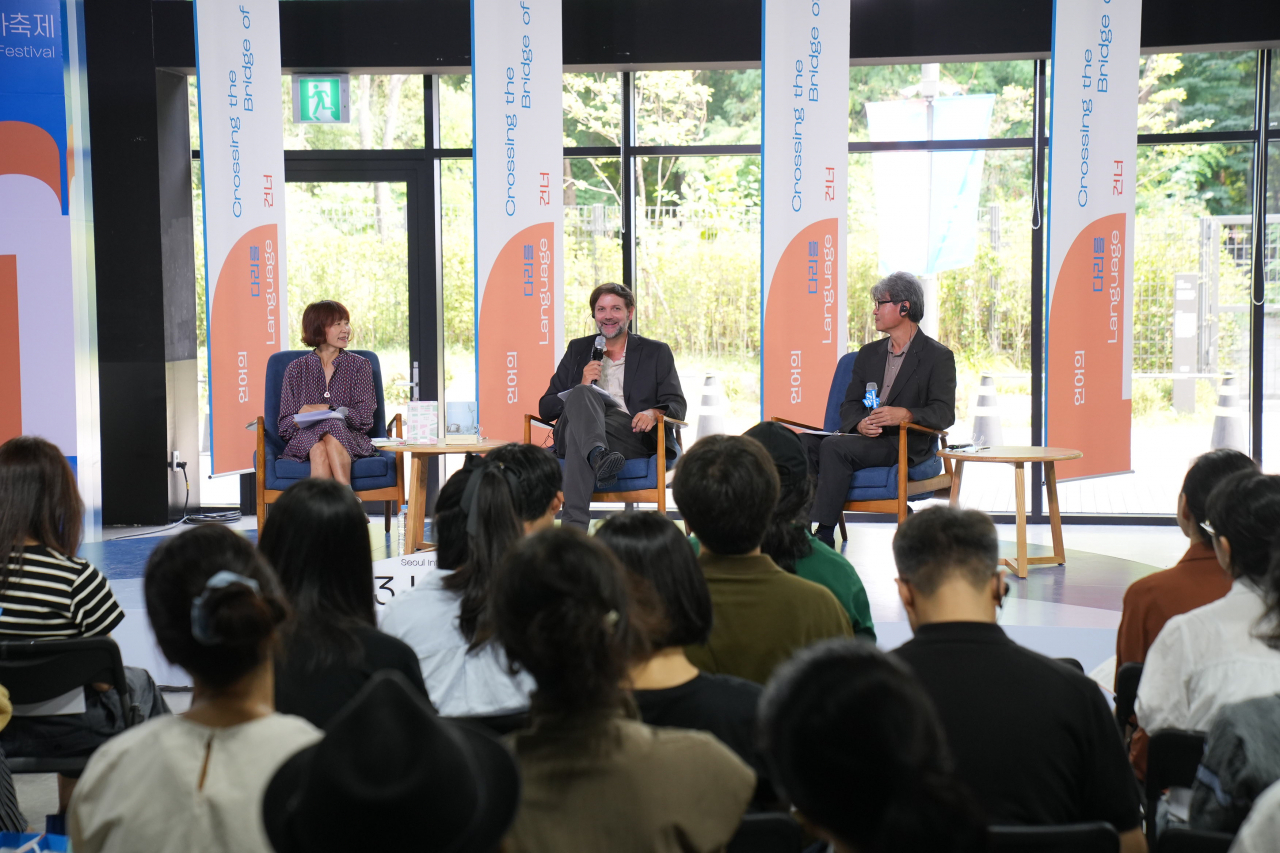Eun Hee-kyung, Andrew Porter explore words of short stories, novels
By Hwang Dong-heePublished : Sept. 15, 2023 - 13:01

On the afternoon of Sept. 10, the third day of the festival, Eun Hee-kyung from South Korea and Andrew Porter from the US met.
Although they had never crossed paths before, these literary talents shared a profound appreciation for the written word.
Both authors, despite being from different corners of the globe, shared a common thread in their literary portfolios: a dedication to crafting both full-length novels and collections of short stories.
For these two writers, the length of a narrative depends on the nature of the story being told, with each style offering a unique canvas to paint their literary visions.
For Porter, who penned his debut publication, "The Theory of Light and Matter," as a collection of 10 short stories, the allure of short fiction lies in its capacity to explore the lives of characters who might not typically take center stage in a novel.
"Short stories often focus on these lonely voices. They’re often alienated, on the periphery," he said. "I also like that short stories don't usually have particularly elaborate plots. … So the focus of the writer in the short story is on the characters and the language and the emotion -- those are the things that I get excited about."

Eun, with eight novels and seven short story collections under her belt, agreed with Porter's sentiments and drew an analogy between art and storytelling.
"I think short stories are much like still-life paintings. They offer something in a very concentrated way, capturing intense moments. On the other hand, novels are like landscapes in that they demand a broader, structural composition (in a bigger picture).”
“I think I write in short stories when I want to describe some fresh discoveries, and novels when I want to challenge myself to (explore things) I didn't know."
When asked about prolificacy in writing, Eun said she has two answers -- one prepared and one honest -- because it’s a frequently asked question.
"I've written 15 books in my 28 years as a writer, but my first book ‘Gift of the Birds’ remains a defining work. I don’t want to think of myself as the type of writer who can't move beyond their first book. So the reason I keep writing new things is that I'm becoming a better writer -- this is the prepared answer," Eun said.
“And my honest answer is that, I'm just living in the present. Because I live in the present, I write about the present. After all, humans always have questions.” Eun added. “It makes me ask questions (relevant to the day)."

The two writers also covered the lingering memory of the pandemic.
Eun said her latest work, “A Rose Named Rose,” was her answer to the question of what we should do for others.
"The pandemic brought to light the prejudices and hidden biases within us," she observed. “It was as if the still waters were stirred, revealing the sediment beneath. … This made me question how we should treat others. In this context, my latest collection of short stories found its place."
Porter said that the pandemic slowed down his life.
"I think we returned to things that maybe we didn't give time to, and at least for me, I was at home all the time with my children and my wife, and we really bonded. We had great family time and (importantly) reading time."
The conversation was also moderated by literary critic Son Jeong-soo, and simultaneous interpretation was provided.



















